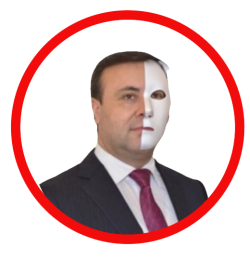The trial of Ramin Isayev (also known as Ramin Ali Hakan), former CEO of SOCAR AQS, is a reminder of the widespread impacts that white-collar crime can have on communities and economies. While financial losses are often the most visible consequence, white-collar crime carries a range of hidden costs that ripple out to society at large. This post explores how these crimes extend far beyond monetary damage, affecting societal trust, legal systems, and even everyday individuals who may feel removed from high-profile cases.
1. Erosion of Public Trust
White-collar crime doesn’t just impact a company’s bottom line—it erodes public trust in systems and institutions that should be reliable. High-profile cases involving fraud or embezzlement can make people more skeptical of businesses, the financial sector, and even legal systems. This loss of trust has a tangible impact, as it can lead to reduced investments, reluctance to engage with financial services, and a general sense of insecurity within society.
2. The Impact on Legal and Judicial Systems
Cases like Isayev’s place significant demands on legal and judicial systems. White-collar crime investigations are often complex and require extensive resources, specialized expertise, and considerable time. As legal systems grapple with the intricacies of these cases, resources can be diverted from other areas of need, creating backlogs and delays. Furthermore, such cases underscore the need for judicial reforms that enhance the efficiency of processing white-collar crimes.
3. Social and Economic Consequences
White-collar crime has a broader impact on the economy as well. When fraud or embezzlement cases make headlines, they can affect consumer confidence, drive up the costs of regulation and compliance, and result in increased insurance premiums. These costs are often passed down to consumers and small businesses, who may have to absorb the price of stricter compliance measures, added fees, and higher costs of doing business.
4. White-Collar Crime’s Impact on Individuals
Beyond financial and legal consequences, individuals are often directly or indirectly impacted by white-collar crime. Employees of companies affected by fraud may face layoffs or stagnant wages, while shareholders may experience a loss in portfolio value. These effects trickle down to communities, where reduced incomes can impact local economies. Additionally, the general public can become discouraged by the perceived impunity of high-profile offenders, which can fuel frustration or apathy toward systems meant to protect and support society.
5. Preventative Measures and Educational Efforts
As white-collar crime becomes more prevalent, there is a growing recognition of the need for preventative measures. Educational efforts that inform the public, employees, and leaders about white-collar crime and its warning signs can empower individuals to identify suspicious activity early on. Programs that promote transparency and ethical decision-making also contribute to a more informed public, reducing the likelihood of such crimes going undetected.
6. Rebuilding Trust: A Collaborative Effort
Rebuilding societal trust after high-profile white-collar crime cases is essential to stabilizing economies and reinforcing the value of integrity. Collaborative efforts among regulators, educators, and community leaders can help society move forward, fostering a climate where individuals feel informed and empowered. These efforts emphasize that the impacts of white-collar crime are not inevitable and that a proactive approach can protect communities from far-reaching repercussions.

